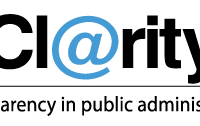Budget Monitor is a ICT tool of SAOG that promotes transparency,accountability,efficiency of public administration through increased citizen scrutiny. BM establishes two way communication with taxpayers:
1.provides sophisticated budgetary information by easy-to-interpret visualizations and dynamic graphs for free and
2.enables citizens to get involved in audit process by informing SAOG about deficiencies in public spending,providing recommendations and contribute to improved public service…
Innovation Tag Opengov: digital government
Decidim est une plateforme numérique imaginée par la mairie de Barcelone dès 2016 pour créer et coordonner des espaces et des processus participatifs, qui vise à étendre et faciliter l’accès à la participation citoyenne en vue de la co-construction et de la co-production des politiques publiques. Il s’agit d’un projet européen open source : son code est ouvert et libre ; en d’autres termes, tout le monde peut le voir, l’utiliser, le copier ou l’enrichir.
We have launched the Citizens’ Packet to make Silesian Voivodeship Office (SVO) a more friendly and serviceable place for users. The core of the packet consists of practical facilitations for our clients who seek information or help. Our client-oriented solutions comprise diverse solutions on every level of our customer care and spread to every organisational unit in the SVO.
The Citizens’ Packet is available online via our brand-new official website.
The Electronic System for the Citizen Information Service (e-SIC) was developed to enable, in a cost-effective and efficient way, the reception and processing of access to information requests. The system facilitated the implementation of the Access to Information Act and serves as an essential tool for monitoring its implementation.
Case Study
Implementation of the Access to Information Act, Electronic System for the Citizen Information…
Law nº 12.527/2011, the Access to Information Act, has come to materialize, in practice, transparency mechanisms of public information predicted in the 1988 Brazilian Federal Constitution, and in other several international treaties.
The Law consolidates the understanding that public information is owned by society, not by public bodies that produce or keep it.
Reviewing and improving mechanisms of various processes, such as increasing transparency and knowledge management, were implemented.
Institutions in the Greek government upload their acts and decisions on the Transparency Portal. Each document is digitally signed and assigned a unique number ensuring that acts and decisions are not valid unless published online. An open data tool enables the re-use of published information. The direct accountability brought by means of the Portal upon the administration, provides fewer opportunities for corruption since citizens and interested parties can monitor the publications and report…

